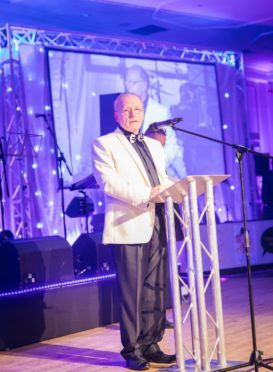A man who lost both his father and father-in-law in the space of a month due to Alzheimer’s has raised enough money to fund a second PhD student dedicated to researching the disease.
Charlie Bain’s six annual charity events have raised £235,000 which will be used to purchase research equipment and fund a four year scholarship.
This is part of his 10-year fundraising commitment to Aberdeen University where research on Alzheimer’s and dementia is conducted.
Mr Bain holds events which centre around the theme of memories, featuring stars such as ventriloquist Paul Zerden, Strictly dancers Kristina Rihanoff and Robin Windsor and composer Professor Paul Mealor.
His father Charlie Bain died aged 81 in 2011, three weeks before his wife Carol’s dad, Roy Chadwick, passed away aged 87. Each had suffered from Alzheimer’s.
The 64-year-old from Bridge of Don said: “It was a really challenging thing for both of us, to lose two close family members at the same time.
“My father went first and really I was grieving and for my wife’s father to go at the same time was very difficult.”
“When you get cancer now, you have a chance of survival so the mission I’m on now is to get to where we can find cures which can slow the disease’s progression.
“If we could pull off significant findings then this could help trillions of people.”
Professor Matteo Zanda, Aberdeen University chairman of medical technologies, oversees the research which explores the potential of brain-penetrating peptides which target defective proteins in the brain associated with these diseases.
He said: “In order to develop treatment options, there is a need for clinicians to be able to diagnose abnormal proteins in the brain as early as possible.
“In doing so, the right treatment can be given to the patient at the right time which could prevent advancement of the diseases.”
Apache Corporation executive assistant Patricia Paterson said the student they funded began in October and was carrying out ‘world class’ research.
She said: “It became apparent that a student who worked with the machines would be a great addition to the programme so we donated £99,999 to support a research student by scholarship for four years.”
